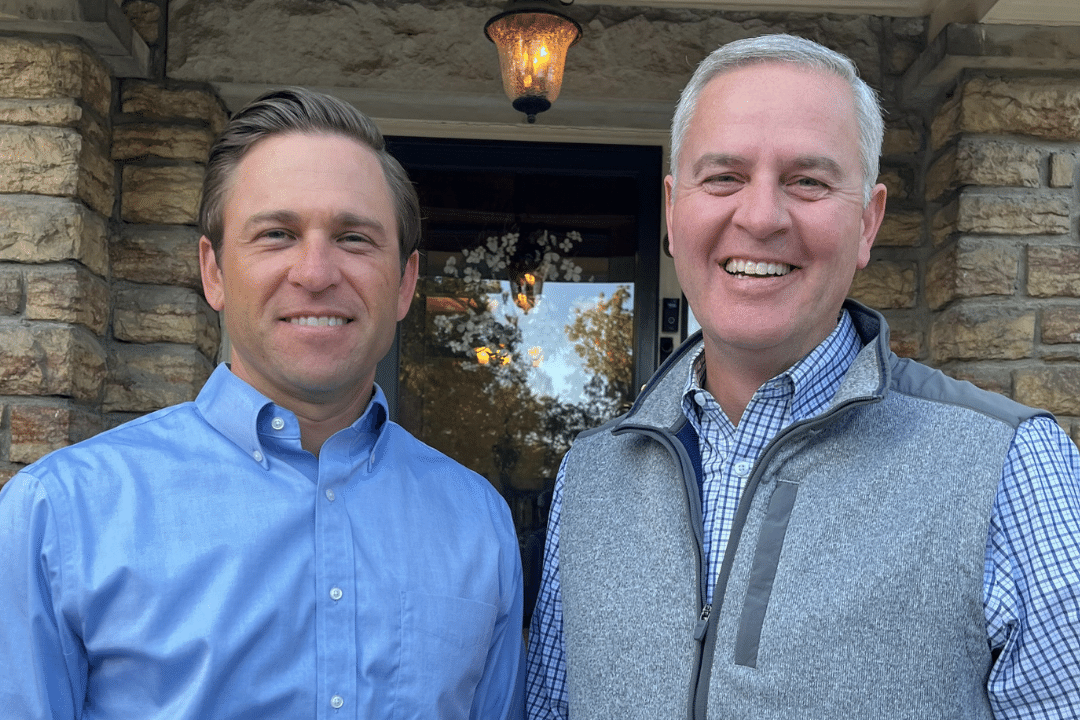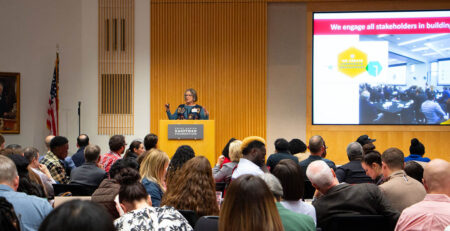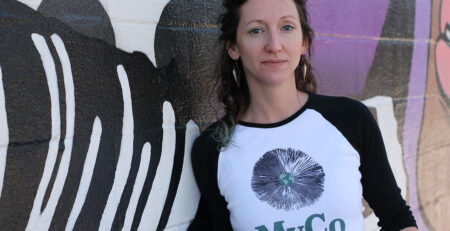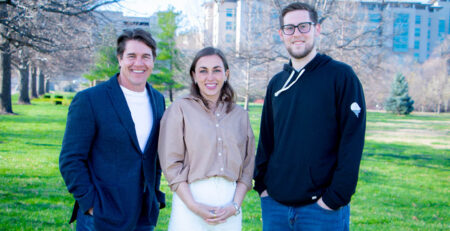This KC Startup is on a Journey to Support People on the Autism Spectrum
Kansas City, Missouri-based startup Routine Success was conceived in 2016, with a focus on helping neurodiverse children thrive in both home and school environments. The idea was simple but powerful: establish routines that provide structure and guidance, making it easier for individuals on the autism spectrum to navigate their daily lives.
The startup’s founder, Matt Gunter, was inspired to create the platform after raising his now 18-year-old son, Peter, who is neurodiverse, he says.
The first iteration of Routine Success was a wearable application, designed to send alerts throughout the day to guide and prompt the user through tasks that help them establish and maintain daily routines.
The company received project funding from Digital Sandbox KC in 2016, allowing Matt to build an initial platform for the company.
“Getting accepted into Digital Sandbox KC really validated our vision and provided the springboard to refine our concept and make it a reality,” Matt says. “The company definitely improved in the process of applying for Digital Sandbox KC. We learned what worked and what didn’t and have definitely brought that knowledge over to version 2.0 of the company.”
However, just as Matt’s vision was taking shape, he faced a significant setback. The technology platform the company relied on, Pebble, was acquired by Fitbit and subsequently discontinued. This turn of events put Routine Success on hold for a few years, but Matt never lost sight of his mission.
Version 2.0: A Fresh Start
Routine Success came back to life last year when Matt teamed up with Conor Kelly and brought him on as a co-founder.
“It took my son growing and maturing and entering a new phase of his life for me to really once again realize that this is still a concept that is needed out there,’” Matt says. “But it needed to be done in a different way — a different iteration.”
Version 2.0 emerged as a mobile app that provides customized routines, alerts and step-by-step instructions, empowering users to develop essential life skills and achieve their goals. Users can designate mentors, such as parents, counselors or educators, who can monitor progress, offer feedback and ensure successful outcomes.
With the new version, the company also expanded its target audience to include older neurodiverse individuals, focusing on those in junior high, high school, college and beyond.
“A lot of people on the autism spectrum do really well when they get into routines and have an expectation of what’s coming up,” Matt says. “It’s beneficial to be quite prescriptive and literal with what they need to do to complete tasks as well.”
Today and the Road Ahead
Routine Success has come a long way since its revival.
The company’s platform is currently in use at three universities and one specialized high school. The company is also conducting research in partnership with Clemson University’s computer science department to assess usability and efficacy. The findings from this research will inform the next version of the app and the commercial launch.
Last year, the company took home $16,000 including $3,000 from the People’s Choice Award at Pure Pitch Rally, an annual pitch competition in Kansas City.
Looking forward, Matt says he plans to raise funding at the end of this year and early next year with an eye toward building a more finalized version of the app for a bigger public commercial launch sometime next year.
A Mission-Driven Approach
At its core, Routine Success is a mission-driven organization. The founders are deeply committed to their cause and share a passion for empowering neurodiverse individuals. The company’s vision extends beyond economic return; it’s about making a meaningful impact on the lives of neurodiverse adolescents and young adults.
Routine Success is not just a company. It’s a beacon of support for neurodiverse individuals, providing them with the tools and guidance they need to achieve increasing independence.
As Routine Success continues to evolve and grow, one thing remains constant: its unwavering dedication to making routine success a reality for neurodiverse people.




